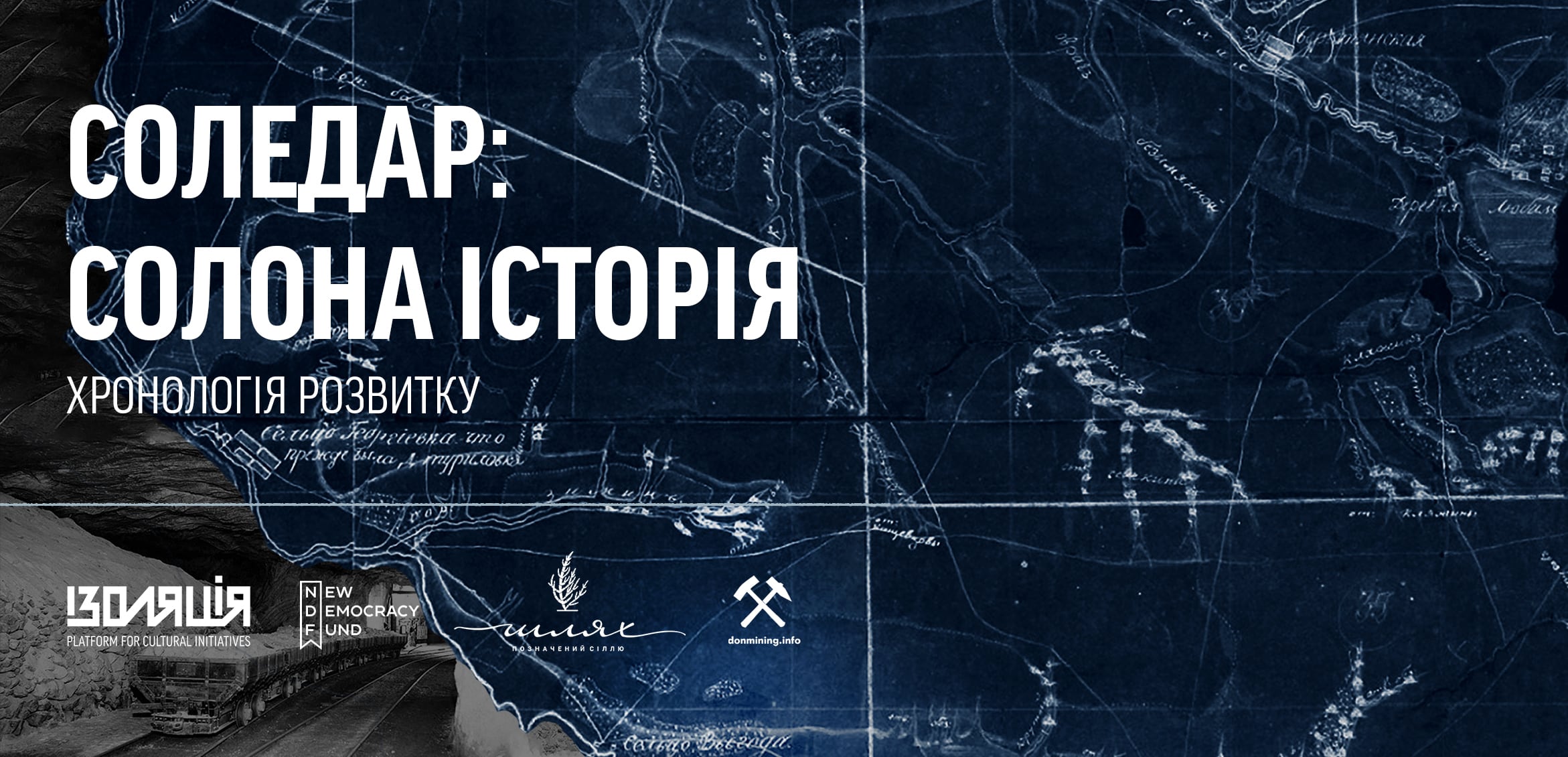Soledar. The Salty History

On January 31, 2024, at 07:00 pm, IZOLYATSIA Foundation invites you to attend an online event dedicated to the industrial history of Donbas. The Soledar. Salty History project aims to familiarize a wide audience of Ukrainians and citizens of the world with the true history of the city known worldwide for its table salt.
For a century, the history of the Ukrainian East remained little known to Ukrainians, including local residents, which undoubtedly had fatal consequences for the definition of their own identity, the strategy for the development of the region, mental guidelines, and the language of the region. The society was falsifying the idea of a "Russian Donbas," falsifying the history of the region, and distorting place names such as Artemivsk (Bakhmut) and Soledar (Karlo-Libnehtsovs'k).
Soledar, now destroyed by the enemy, is the center of Ukraine's salt industry. Salt found its place not only in the name but also in the official symbols of the city — in the coat of arms and the flag. Since the beginning of the eighteenth century, local colonization has been taking place around the Bakhmut fortress: many settlements have appeared whose inhabitants are engaged in salt production. This is how the history of the future city of Soledar begins on the banks of the Mokra Plotva River, a tributary of the Bakhmutka.
Time demanded modernization of production and expansion of sales markets. The evolution of industrial salt production and the development of the city around the production is the "salt" of the project. For more than a century, salt mines have been a source of wealth for the Bakhmut region. In the recent past, they have become one of the powerful tourist magnets of the Donetsk region. It is home to the country's only tourist destination at a depth of 300 meters — the famous Soledar salt mine with its amazing halls and facilities.
The project will present the history of the city interactively:
- how small villages united into a city;
- mapping the growth and development of the city;
- chronologically shows the key events in the city's formation;
- the construction of mines and factories.
To register for the event, please follow the link.
The Soledar. The Salty History project is implemented with the support of the New Democracy Fund implemented by the Danish Cultural Institute.